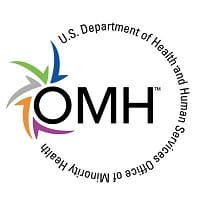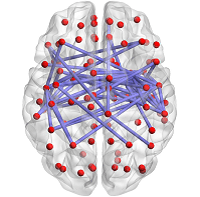
Jul 01 2019
SAMHSA and CMS have jointly released a new resource bulletin for educators, advocates and administrators preparing for the coming school year. Schools can fill a critical role in identifying children and adolescents who are experiencing mental health or substance use issues and connecting them to necessary treatment and support. SAMHSA and CMS provide examples of school-based services, identify applicable Medicaid state plan benefits and summarize best-practice models for implementing mental health services for students. To download the guide, please visit the SAMHSA website.

Jun 25 2019
By studying the behaviors and experiences of at-risk individuals, researchers hope to identify signs of an oncoming episode of psychosis. Past research indicates that language patterns are one such sign. A new study used a machine learning system to analyze the speech patterns of 30 young people at risk of developing psychosis and 30,000 contributors to the social network site Reddit. The machine learning system was able to predict which at-risk individuals would develop psychosis in the following two years with 93% accuracy. This represents a major opportunity to intervene and potentially prevent poor outcomes for at-risk individuals. To learn more about this study, please visit the NIH website.

Jun 05 2019
Pharmacogenomics is the study of how genes affect a person’s response to medications. When the interaction between a specific gene variant and a medication is well-understood, genetic testing can help a prescriber select which medication is most likely to be effective. This could be a significant improvement for people seeking treatment for depression, as they often try multiple medications before finding one that is effective. Beginning in 2020, the National Human Genome Research Institute will conduct clinical trials to determine whether genetic testing improves the efficacy of prescribing medications for chronic conditions, including depression. To learn more about the trials, please visit the NIH website.

Jun 01 2019
A new training program from The U.S. Department of Health and Human Services Office of Minority Health is now available online. The free four-course program for behavioral health professionals is designed to improve cultural and linguistic competency. Participants will learn basic concepts of cultural identity, increase self-awareness of their own identity and learn how to build stronger therapeutic relationships with clients from diverse backgrounds. Licensed alcohol and drug counselors, nurses, psychologists, psychiatrists and social workers can receive 4–5 contact hours for completing the program. To learn more, please visit the HHS website.

May 14 2019
Naloxone is a medication administered by nasal spray or injection to reverse opioid overdose. In some states, a doctor must prescribe naloxone. In other states, pharmacists have the authority to dispense naloxone without a prescription to certain people—for example, people who are enrolled in a treatment program for substance abuse. Between 2013 and 2016, nine states instituted laws to allow pharmacists to dispense naloxone without a prescription to anyone who requests it. A new study shows that these states experienced the sharpest decrease in fatal opioid overdoses—an average 27% reduction in deaths in the first year after passing the law. To learn more about this study, please visit the NIH website.

May 01 2019
In recent years, studies have helped us understand much more about the way the immune system and the brain signal to each other and how these patterns can cause physical and behavioral health problems. Two new studies show that individuals with higher levels of inflammation have lower levels of connectivity in areas of the brain involved in emotional regulation and executive function. This suggests that immune stress can predispose a person to emotional difficulties, drug use and other risky behaviors. To learn more about this study, please visit the NIDA website.

May 01 2019
NIH has launched a new website for its MedlinePlus magazine offering content in English and Spanish. The site is fully bilingual, allowing users to search for magazine content by health topic or by quarterly print issue. Content includes articles, interviews, news stories and videos on a range of physical and mental health topics. To learn more, please visit the MedlinePlus website.

Apr 30 2019
The day after Robin Williams’ death by suicide in 2014, the National Suicide Prevention Lifeline experienced a 300% increase in the number of individuals seeking help and information. Tragically, an above-average number of individuals died by suicide in the next 30 days—many using the same method as Williams. A new report highlights the need for suicide prevention hotlines to allocate funding and develop contingency plans in the event of highly-publicized suicide deaths. To learn more, please visit the NIMH website.

Apr 11 2019
Researchers have previously shown that ketamine is effective for immediate, short-term treatment of suicidal ideation and symptoms of depression. A new study in mice shows that ketamine causes physical changes in brain cells, potentially supporting sustained remission. Mice who exhibit depressive behavior experience rapid loss of “dendritic spines”—parts of brain cells that are necessary for chemical signaling. When treated with ketamine, the mice showed improvements in behavior within three hours and regrowth of dendritic spines within 24 hours. These findings bring us closer to understanding what lasting remission of depression in humans may look like. To learn more, please visit the NIMH website.

Mar 21 2019
The use of complementary health practices and products by children and teens has significantly increased in recent years. Yoga, meditation and the use of natural products like fish oil, melatonin and probiotics may be prescribed or self-selected for common conditions such as anxiety or stress, ADHD and insomnia. The National Center for Complementary and Integrative Health (NCCIH), a division of the National Institutes of Health, has created a new resource page for parents and youth interested in complementary health practices. To learn more, please visit the NCCIH website.
NAMI HelpLine is available M-F, 10 a.m. – 10 p.m. ET. Call 800-950-6264,
text “helpline” to 62640, or chat online. In a crisis, call or text 988 (24/7).